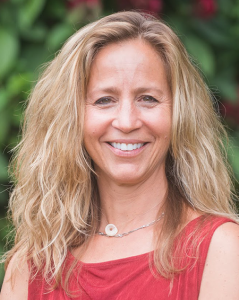By: Andrea Sussel, MSS, LCSW
It’s time to talk about it
The National Eating Disorders Association has created National Eating Disorders Awareness (#NEDAwareness) Week to shine the spotlight on eating disorders and put life-saving resources into the hands of those in need. This year’s theme is It’s Time to Talk About It. Andrea Sussel, PQ Therapist, shares how we can make that happen without doing further harm.
Eating disorders, food and body image are not easy things to discuss. Conversations can be riddled with unintended triggers, for example, I have heard from many people who are in recovery say that when someone tells me I look “healthy” they instead hear “you look fat”. So how do we discuss these issues without contributing to the struggles of another?
- Focus on what our bodies can DO and how they FEEL, not on how they LOOK.
Because our approach is one of whole-person wellness, students can begin to focus on what their bodies need and how their bodies feel versus how they look. While this is occurring, we are simultaneously providing a lot of education – including lots of research – about whole-body, whole-person wellness. From a programmatic perspective, shifting this focus includes de-emphasize mirror gazing (at PQ we have very few to begin with) and also having students wear clothes that are loose fitting and uniform. - Remember that exercise and movement is for our physical and mental health, not for weight loss.
Experiencing what are bodies can do, and moving them shamelessly is an essential part of healing from an eating disorder. At PQ, we educate our students about metabolism and how food as fuel translates into a greater capacity to live our lives with more vibrant energy. Movement takes the form of working in the garden, yoga, swimming, weekend hikes, and daily core workouts. It takes reinforcement to rewire the societal messages that tell us to exercise to control weight. At Pacific Quest, we move for a higher quality existence, one that helps us feel more connected to our bodies and our passions. - Speak up when we hear “Fat Talk”, don’t let it go unaddressed.
Pacific Quest is a Fat Talk free zone. Having appropriate boundaries about what we can and can’t talk about helps not only break the pattern of negative self talk, but gives space to encourage new and healthier patterns to emerge. PQ is also “lookism free”. Lookism is defined as a “construction of a standard for beauty and attractiveness, and judgments made about people on the basis of how well or poorly they meet the standard.” At Pacific Quest, you can be healthy at any size. We don’t subscribe to one “look” being beautiful – all looks, shapes, and sizes are! - Remember, food is medicine.
Sometimes what isn’t being said is just as important as what is. Getting involved in food preparation can be a healing activity, as individuals start to rebuild their relationship with food. And at Pacific Quest, growing your own food is akin to teaching someone how to fish; learning and beginning to appreciate that entire developmental process can lead to lifelong shifts in understanding and healing. Students have the opportunity to learn about their own relationship with/to food as well as the relationship with their body. The place where these two relationships overlap is in the garden, making Horticultural Therapy a powerful therapeutic modality. There is also a lot of healing that comes from preparing your own food in a community setting. Because Pacific Quest is not a primary eating disorder program, students with eating disorder patterns are able to observe and “rise to” the normative eating habits of the rest of the group.
The Pacific Quest model imparts skills to make progress and healing sustainable for eating disorder recovery for a lifetime: You learn how to truly feed all your hungers at Pacific Quest.
